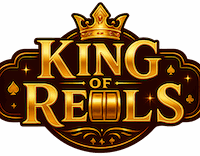The sum that may be wagered on an online slot machine spin will be rounded up to £5, but £2 for young clients, which is portion of the government’s drive to toughen regulation of the UK’s £11 billion per year gambling industry. Additionally, at the moment, video slots are not subject to limits on how much players may wager.
Online stake limits to be more in correspondence with machines in bricks-and-mortar sportsbooks and casinos:
According to plans unveiled by The Guardian on February 21 and verified on February 22, online stake restrictions will be more in correspondence with machines at bricks-and-mortar casinos and bookmakers, beginning in September. In addition, this step, which is part of a host of gaming proposals outlined in a white paper in 2023, is projected to be valued at nearly £170 million of the £10.9 billion annual income of the gambling industry, based on government estimates.
Relatedly, although the £5 maximum stake for those older than 25 is the lowest of the stakes of the £15 maximum that government thought about throughout its consultation that lasted for 10 weeks, campaigners commented that the plan didn’t manage to achieve enough. In addition, stocks in gambling firms increased following the report by the Guardian.
However, Stuart Andrew, the gambling minister, commented that the government made the right moves to shield young individuals in particular, in addition to vulnerable individuals. In this regard, he said according to The Guardian: “Although millions of people gamble safely every single day, the evidence shows that there is a significantly higher problem gambling rate for online slot games. We also know that young adults can be more vulnerable when it comes to gambling-related harms, which is why we committed to addressing both of these issues in our white paper. The growing popularity of online gambling is clear to see, so this announcement will level the playing field with the land-based sector and is the next step in a host of measures being introduced this year that will protect people from gambling harms.”
Indicators of problem gamblers:
Problem gambling is usually detected through the Problem Gambling Severity Index (PGSI), which includes questions like whether players have experienced social or financial problems and stress because of their pattern, and whether they have attempted to wager more in the hope of winning back their lost finances. But that’s not all; because it is also discovered via the DSM-IV measure of mental disorders.
On a related note, the survey by National Health Service (NHS)of problem gambling by product type, during 2018, discovered that 8.5% of players from online casinos, involving slots, were categorized as problem gamblers by the DSM-IV or PGSI. However, that number is significantly bigger than that for land-based slots at 5.1%, 1.3% for absolutely any form of gambling and 3.7% for online sports wagering, without the lottery.
From the time of that survey, the online casino division has seen a surge in demand, growing incomes from £3.1 billion to £4 billion. However, of that overall number, slots are responsible for the largest share of losses made by gamblers to online casinos, amounting to £3.2 billion.
Government forecasts indicate that the fresh stake caps will cost the the industry as a whole £170 million, or nearly 1.5% of its yearly £10.9 billion revenue, taking into account clients shifting their spending to different products. Additionally, stakes in firms that provide video slots, including 888, Ladbrokes owner Entain and Flutter, increased quicker compared to the Financial Times Stock Exchange (FTSE) 100 index on February 21, suggesting there wasn’t any worry among investors.
Different opinions:
Proponents of tighter regulationregarding gambling have commented that they thought the government should’ve imposed an overall stake restriction of £2 board-wide, in accordance with steps taken to crack down on £100-per-spin fixed-odds wagering terminals back during 2019.
On that note, the co-founder of the charity Gambling with Lives, Charles Ritchie, commented: “The £2 limit for under-25s is a step in the right direction, but £5 for over-25s is another missed opportunity to stop the harm to millions and the devastation caused by gambling suicides. Stake limits offer some reduction in harm but the products are still highly addictive, so we also need much slower spin speeds, affordability checks, and proper public health information about the dangers.”
In addition, slot machines were “associated with large losses, long sessions, and binge play,” according to what the Department for Culture, Media and Sport commented in a press release. Relatedly, the aforementioned press release also stated that the ruling to introduce a lower restriction for younger than 25 was in accordance with proofs that display bigger rates of problem gambling in the circles of young individuals, who possess lower expendable revenues and are still growing psychologically, which has a huge effect on their risk assessment.
Commenting on that, the chief executive of industry lobby group the Betting and Gaming Council (BGC), Michael Dugher, commented, according to the official press release: “We welcome the government’s decision on new stake limits for online slots games, which provide enhanced protections for young people. The BGC supported the Government’s intention to reform stake limits and we fully engaged in the consultation process and the discussions with Ministers that led to these proposals. It is important to recognize that measures like this come with a cost to our members and impact their customers. Nothing in the White Paper should be viewed in isolation, but instead seen as a total package, and I would urge Ministers and the regulator to remain mindful of the overall impact all these changes make for BGC members. We must avoid customers drifting to the unsafe, unregulated black market online if we don’t tread carefully and get the balance of regulation right.”

